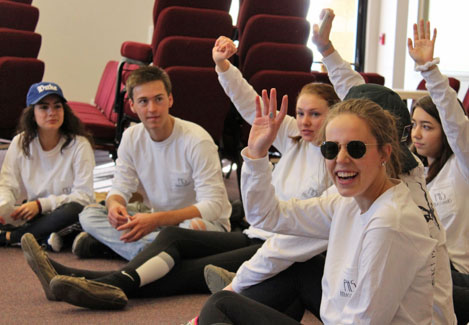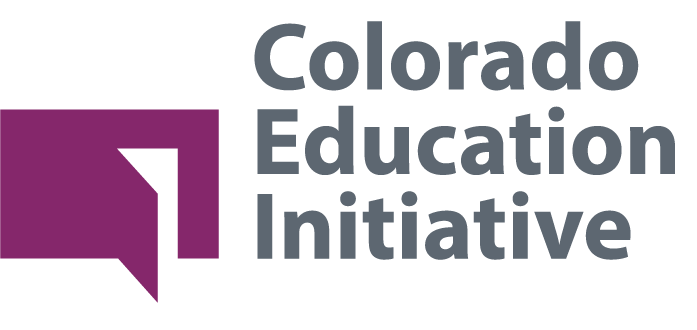All Learning is Social and Emotional
September 21, 2019
By Finessa Ferrell, CEI Social Emotional Learning Specialist
Poudre High School (PHS) in Fort Collins has a long history of collaboration with CEI to build social emotional development opportunities for their student body. Six years ago, CEI supported the creation of the Students Mentoring Students program. Since that time, the program has grown deep roots at the school, with countless stories of connection and inclusion.
In June of this year, students and educators from PHS joined me to present a relationship building session at CEI’s High School Redesign Accelerator. In preparation for the Accelerator, I spent a day at PHS observing the Students Mentoring Students program.
Students Mentoring Students at Poudre High School
The PHS freshman seminar is taught once a week by upperclassmen students who are known as Ambassadors. Those interested in becoming an Ambassador go through a rigorous student-led application process, two days of training in the summer, and two full days of training during the school year. During the 2018-19 school year, 53 Ambassadors attended class three times a week, where they co-created and practiced the content they would deliver on Thursdays and Fridays in freshmen seminar. In addition, each Ambassador mentored a group of six freshmen for the year.
I observed the Ambassador class as they were practicing the lesson for the week, Understanding and Managing Stress. Then I observed two freshman seminar classes where Ambassadors delivered the content, taught six breathing techniques and connected with each of their mentee groups to work individually on stress management. It was also interview week, so I sat in on a group interview—four current Ambassadors interviewing six sophomore candidates.
Often people question whether large urban high schools can do social emotional work effectively, and I have witnessed that they can!
It’s not about advisories, it’s about deep sharing and building connective tissue between people, whether that’s in an advisory structure, freshman seminar, in every classroom or something else. During the session at the Accelerator, four PHS students and two adults shared their stories—of rape, domestic violence, cancer, drug addiction, attempted suicide and coming out.
They described their annual retreat with 50 students, where they shared the highest and lowest moments of their lives with each other. The students carried that connective tissue into their work as Ambassadors, mentoring freshmen and teaching Freshman Seminar, imagining that all freshmen have the same sorts of highs and lows that they shared with each other during the retreat.

It was amazing to witness each student taking their place one-by-one in the middle of the room, telling their scariest truths to the peers and adults around them. You could hear a pin drop as they just laid themselves bare for an audience of strangers.
I sensed that many adults were shocked. How is it that a diverse group of young people, all accepted to colleges across the country, have a collective story of trauma, abuse, emotional struggle or ending their lives? How could their teacher share about his father’s alcoholism, abusive behavior and his brother’s suicide? Just share it, humbly, vulnerably.
The through-line here is obviously the power of relationship, but it’s also a story of social emotional skill as well. Whether they realize it’s happening or not, students at PHS engage in daily experiences that build their social emotional competency. They can be vulnerable, transparent, humble, empathic, compassionate, and profoundly self-reflective at a conference of strangers because they have watched it, learned it, and practiced it every day at school.
As the arc of the Accelerator experience closed for the educators in the social emotional strand, they learned about the science behind the developing brain. Preparing brains to learn means buffering stress, showing you care, and building those emotional regulation skills that keep the pre-frontal cortex in charge, rather than the amygdala.
The key is not social emotional learning, it’s understanding that all learning is social and emotional. That’s how learning actually happens in the brains and bodies of all the humans around us. The most important take-away of all was that the potential that exists inside every person’s genome is driven by the quality of the relationships and environmental conditions they have around them. Educators have the opportunity to create the conditions where not only all young people thrive, but where adults do as well. Ultimately, it’s a profoundly hopeful story.
